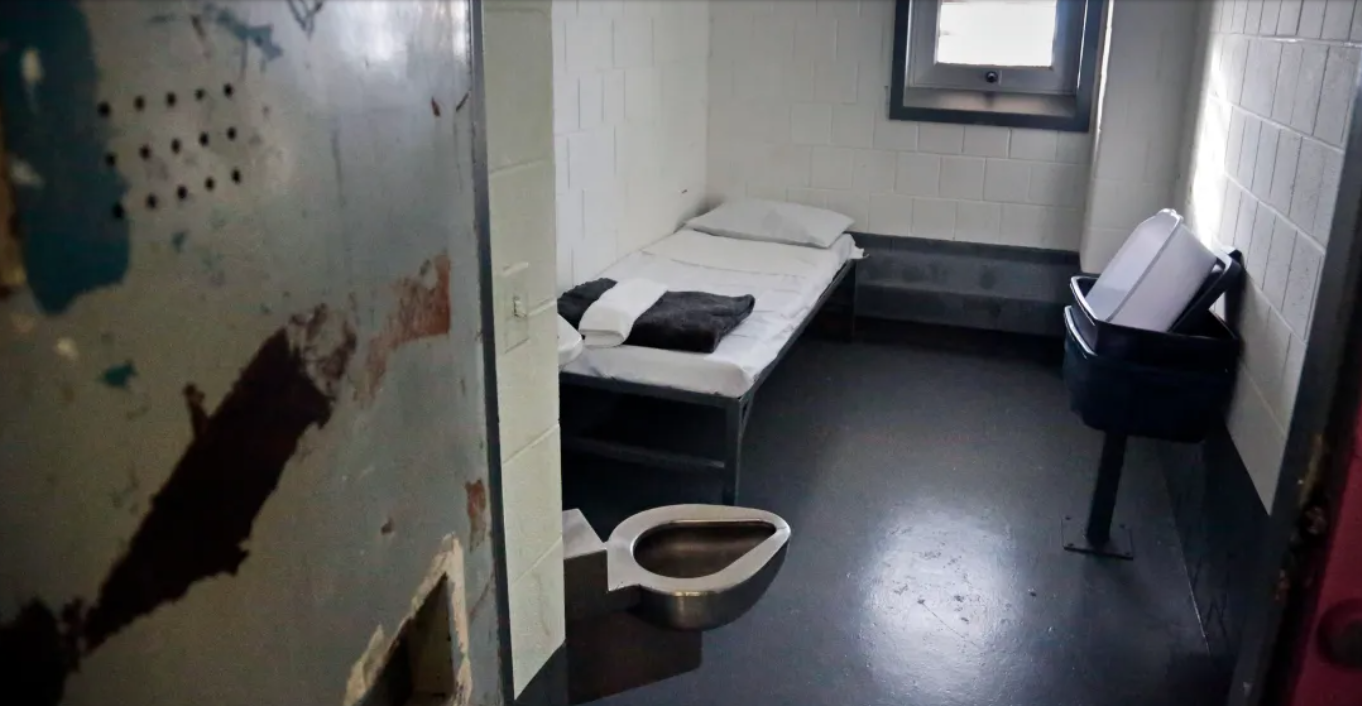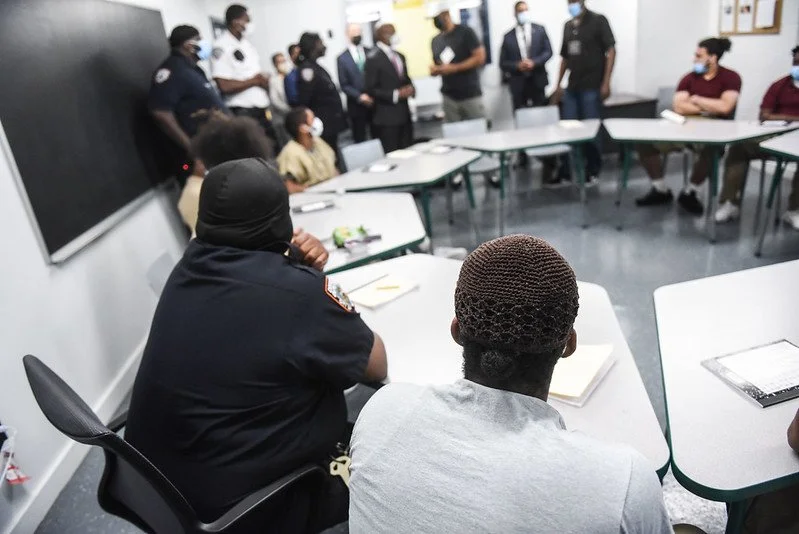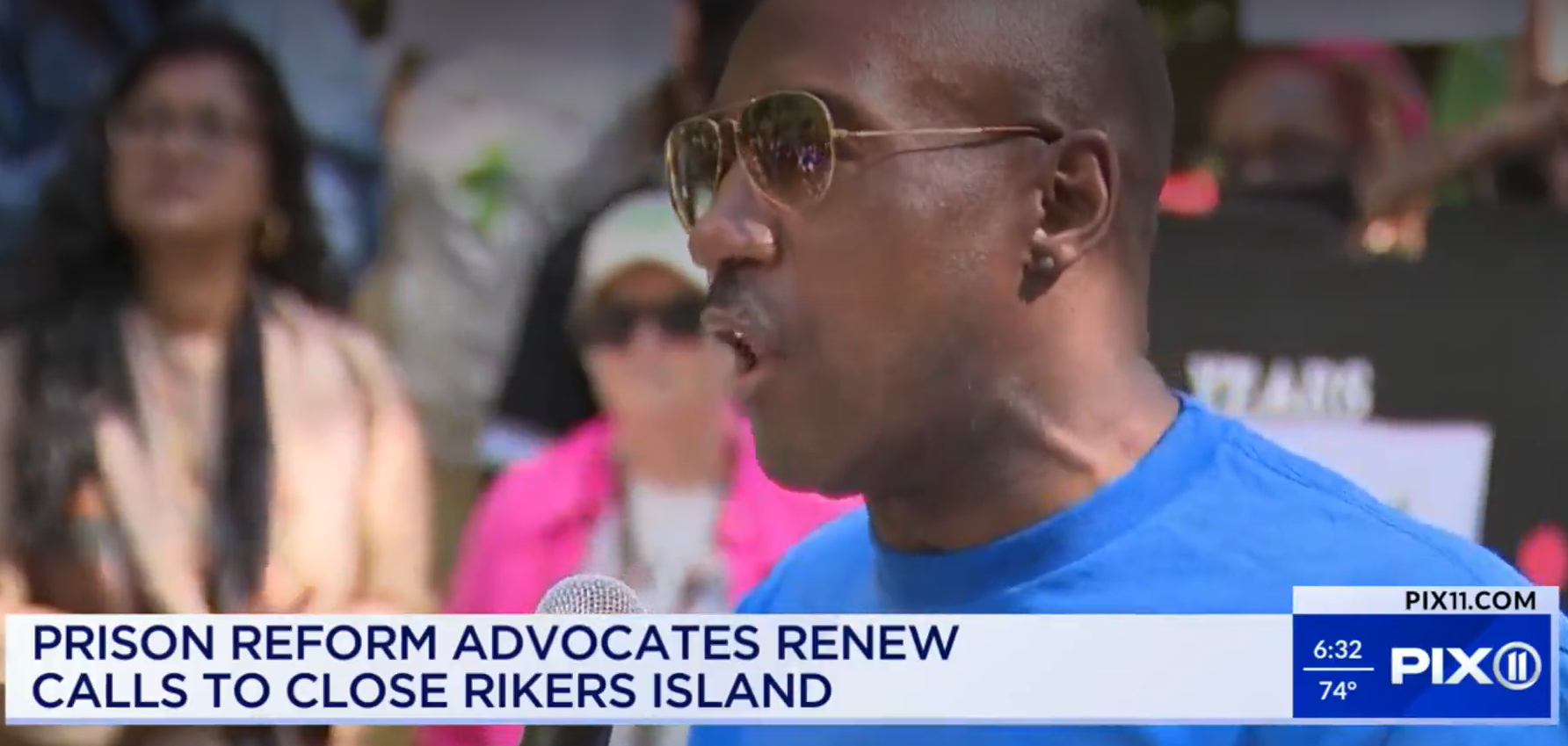CAMPAIGN LEADERS
ANDRE WARD
In the end, we know that Rikers Island is not a place where humanity can survive. The only thing that can survive on Rikers Island that we know is the bars.
Andre Ward Executive Director at the John Jay College Institute for Justice and Opportunity, an organizational partner in the Campaign to Close Rikers.
MEDIA APPEARANCES
Q+A
1.) How are you connected to this movement?
My connection to the movement and campaign to close Rikers is associated with my work at the Fortune Society, where I serve as the Associate Vice President of Policy at the David Rothenberg Center for Public Policy. Another part of my connection to the coalition is being a person has also been directly impacted by Rikers, having been on Rikers Island over 30 years ago, and witnessing the trauma that people experience, experiencing my own sense of trauma while there, and understanding the need to make sure that Rikers is changed completely and ultimately closing. And so that's my relationship with the coalition and why I'm part of the movement to close Rikers - because of the sheer inhumanity and the need to ensure that human beings are treated with humanity.
2.) Why should Rikers close?
Rikers Island should close because of the years and years of harm that people have experienced while there. And a lot of what people have experienced is a function of neglect, mismanagement, and dysfunction at Rikers Island, and the inability to see the need to develop alternatives that would be able to facilitate not placing people on Rikers Island, but alternative ways to engage in people. And so, for those reasons alone, I feel that Rikers Island should be closed. And until we get to a place where that happens, we will continue to see more dysfunction. We'll continue to witness people mourning the loss of their loved ones because their loved one has died on Rikers or was killed on Rikers Island. In the end, we know that Rikers Island is not a place where humanity can survive. The only thing that can survive on Rikers Island that we know is the bars. And even that is not able to survive in some facilities as some of the facilities are decrepit and buildings have fallen apart.
3.) What is your vision for a more just and equitable post-Rikers New York City?
A more just post-Rikers equitable solution that will positively impact our community has all to do with ensuring that the right resources are put into our communities, and there is a diversion away from subsidizing Rikers Island and corrections in a way that takes away from the resources that communities need. We know that many of the people that are in Rikers Island are there because of crimes of poverty, not because there's some genetic basis to their behavior of violating the law in some way. And so it just makes sense fiscally and makes sense from a public health perspective, as well as a public safety perspective, to divert funding away from corrections and other institutions and deal with law enforcement in a way that is balanced and fair. So we're not saying don't support those entities - what we are saying is that it has to be equitable and it has to be fair. The community should receive equitable funding, equitable support to build up its infrastructure to sustain the sense of the community that's so needed in order to ensure that people grow up healthy and whole. So that's what I would envision in terms of a post-Rikers and what the community could look like, and why it's so important that there has to be equity in terms of funding and allocation of funding in communities and building them up.








